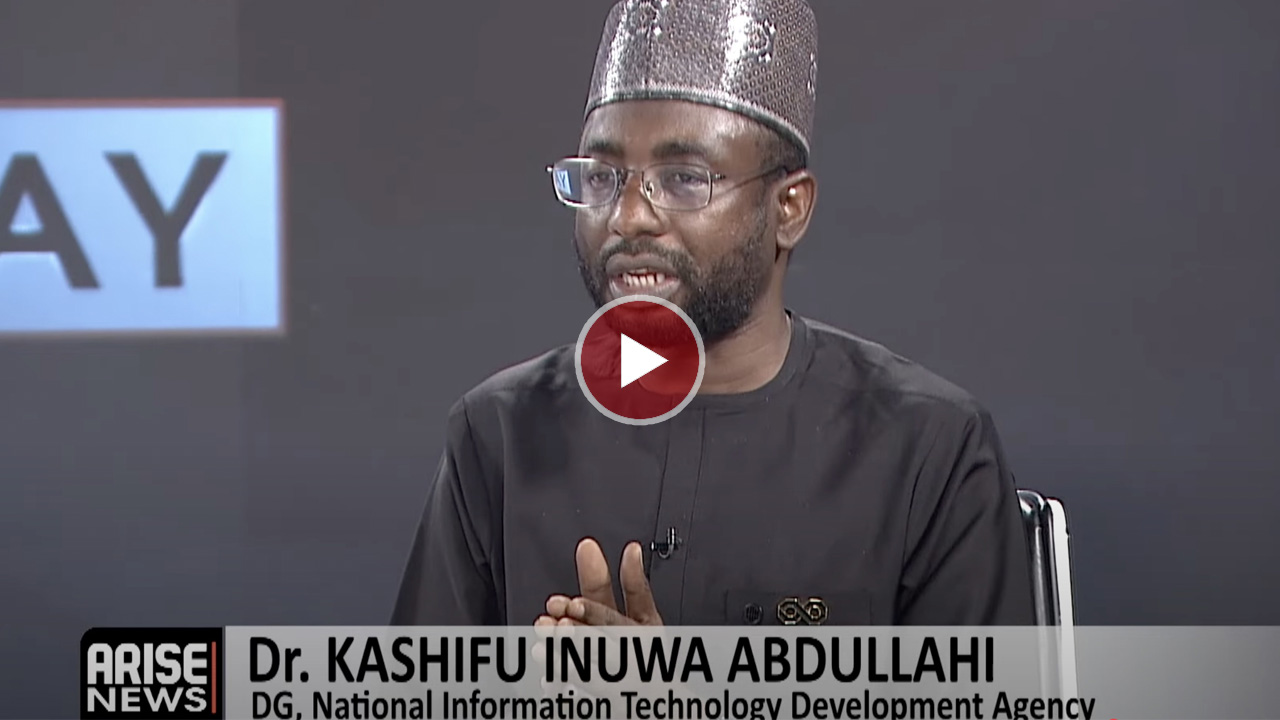

The Director-General of the National Information Technology Development Agency (NITDA), Dr Kashifu Inuwa Abdullahi, has revealed that Nigeria already hosts a data centre that consumes nearly the same amount of electricity as Lagos State, underscoring the enormous energy demands of artificial-intelligence infrastructure and the need for innovative power solutions.
In an interview with ARISE News on Wednesday,
Dr Abdullahi said. “Today, we have data centres consuming about 1.3 gigawatts of power, which is almost the same capacity Lagos State consumes.”
He added that “AI data centres are power-hungry; they need enormous energy to run. Globally, no grid can meet AI data-centre requirements. We are talking about facilities that could consume as much as 10 gigawatts.”
He explained that even advanced economies are facing similar pressures.
“Recently, the former Google CEO said the U.S. would need 92 additional nuclear-power reactors to meet AI data-centre demand, almost the same number it already has. Power is a global challenge for AI, but we must not use that as an excuse not to build our own capacity.”
According to him, Nigerian data-centre operators now rely on high-speed on-site generation, including solar, renewable storage and the national grid, which he described as global best practice.
“We need to be innovative in building power systems, in developing infrastructure that requires less energy, and in creating intelligent energy-management systems,” he said. “As we invest in power infrastructure, we must simultaneously invest in AI infrastructure.”
Speaking on Nigeria’s newly released National Artificial Intelligence Strategy Framework, Dr Abdullahi said the policy rests on five pillars designed to democratise AI and extend its productivity benefits beyond corporations to farmers and market traders.
“AI is already helping organisations achieve a 10x leap in productivity and efficiency,” he said. “But how can we democratise it — how can the farmer on the field or the trader in the market also achieve that 10x leap? That’s why we developed our national AI strategy — to give us a clear roadmap.”
He listed the first pillar as building foundational infrastructure — connectivity, computing power and local datasets.
“Most AI systems today are trained on foreign datasets. We need our own datasets that capture Nigerian realities,” he said.
“The Minister is driving an initiative to roll out 90,000 kilometres of fibre-optic cable nationwide, to connect the unconnected and ensure every Nigerian is digitally visible.”
Dr Abdullahi said Nigeria is also investing in sovereign cloud infrastructure and developing its own national large language model, known as N-ATLAS, trained in Hausa, Igbo, Yoruba and Pidgin English.
“We are building systems that understand our culture, our values and our realities,” he noted. “Innovation cannot happen in isolation; academia, researchers, corporations, innovators and government must work together.”
The DG added that another pillar focuses on responsible and ethical AI, warning that AI systems can influence decisions on credit, justice and access to opportunities.
“These systems must capture our values. Building AI is not just software engineering; it’s social engineering,” he said.
He also emphasised the importance of a robust governance framework to keep AI “under human control” and of investing heavily in talent development through programmes such as the 3-Million Tech-Talent initiative and Digital Literacy for All, which aims to make every Nigerian digitally fluent.
Dr Abdullahi said Nigeria’s drive to anchor AI development locally begins with the Digital Public Infrastructure (DPI) Initiative, which provides a national backbone for payments, digital identity and data exchange.
“We already have a world-class payments system run through public-private partnership and an identity system that has captured nearly 50 percent of our population,” he said. “What we lack is a data-exchange platform that ensures when you capture your data once, you don’t need to capture it again anywhere else.”
Such a system, he said, would accelerate innovation and allow startups to build AI solutions on top of it.
“Imagine a farmer using an AI app to analyse soil nutrients, weather and irrigation timing, or a market woman connecting directly with farmers and buyers. That’s the kind of future we’re building — one where everyone can access AI to improve productivity.”
He said the government is creating incentives to attract private-sector and development-partner investment, since large-scale digital infrastructure cannot be built by government alone.
Addressing global investors still hesitant to back Africa’s AI and cloud-computing story, Dr Abdullahi said President Bola Ahmed Tinubu’s Renewed Hope Agenda has made economic diversification and digital inclusion central priorities.
“The President has opened up the economy, approved a new PPP policy that allows MDAs to work with the private sector to build infrastructure — including digital infrastructure — without waiting for budget cycles,” he said. “Nigeria has the demographic dividend and the market. We are going to be the next digital frontier,”he concluded
Boluwatife Enome



